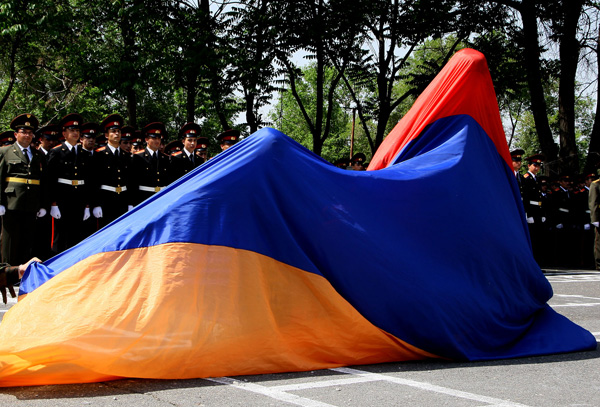Although the first president has said that it is not the time for analysis, I, however, will try to mention in few words why we have appeared in this situation by not focusing on any individual. The roots, in my opinion, need to be searched in the sources of the newly independent republic.
Our state elite is composed of two components: 1/ carriers of national-liberation ideas: a struggle for the recognition of Genocide and Karabakh claims, 2/ corrupt, demoralized, cynical communist-KGB nomenclatures. The second “filled” with the first one (i.e. you can steal and take bribes and be “patriotic”), and we had the Third republic. The above-mentioned tendencies must be overcome.
1/ We are saying “fedayeen”, “Yerkrapah”(land keeper) and “freedom fighter” like people used to say in the past a “mauzerist”, “chieftain.” And it “sounds more proud” than the “serviceman” and “war veteran”. For the last two must fit into certain state regulations while “fedayeen” and the rest implies certain arbitrariness, with “I have shed blood for my nation” compelling justification, with “squads of guys”, illegally keeping weapons at home and so on. The cartridge belt, papakha (a tall Caucasian hat), the lyrical outpourings of patriotism – this “entourage” of the national-liberation struggle of the 19th century, has been almost unchanged transferred to the 21st century by forming not only civil and political rhetoric but also a mindset. Fedayeen and national-liberation thinking suffices to introduce the “genocide” issue inside and outside the country. They were enough to achieve success in the first Artsakh war, glory and honor to our heroes.
But this level of thinking is not sufficient in the new war, which expects us, the four-day war hinted us on it. The new war is going to be more technological, more economic and more if it is allowed to say, state. And this requires technologies, economy and most importantly, a state. You cannot build a state with fedayeen. Without a state, we will not be able to win in this century.
Read also
2/ The “post-Soviet” elite is different from the Soviet elite by the fact that it is more corrupt and more cynical, plus it has owned the national-liberation vocabulary. In the absence of obvious open market relations and “iron curtain” and the relative freedom of expression, it becomes more and more inadequate over the time and resembles the Brezhnev Politburo images. They also do not comply with today’s challenges.
Today, it seems that the first one is fighting against the second one. In fact, the time for both has elapsed.
ARAM ABRAHAMYAN























































